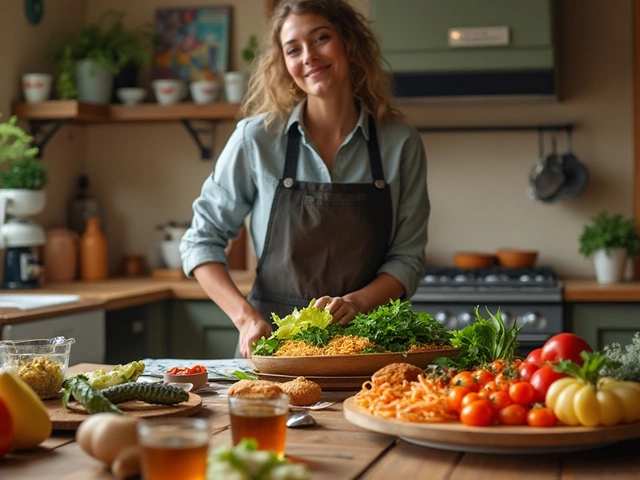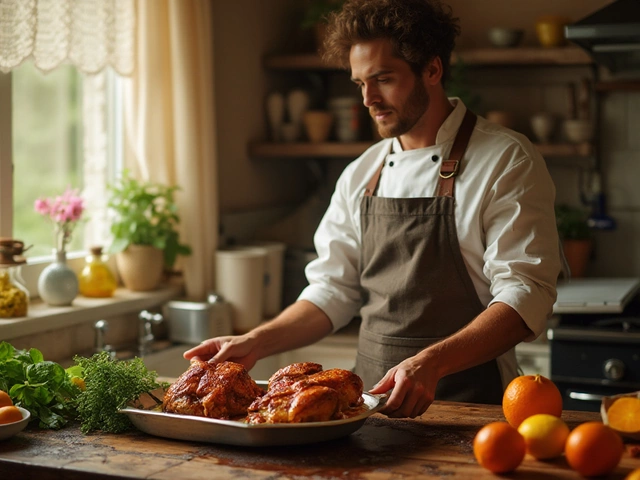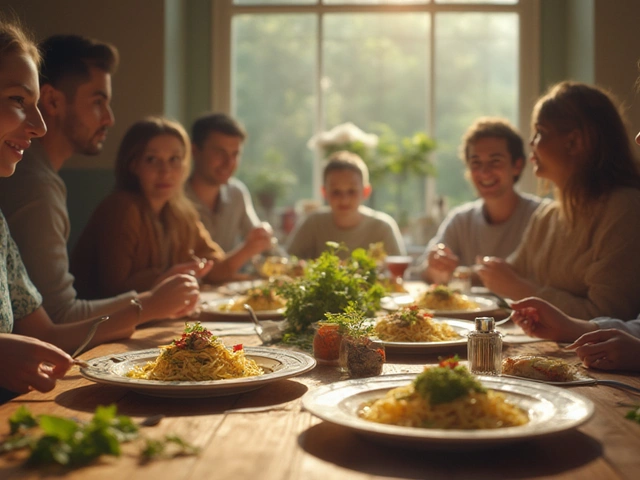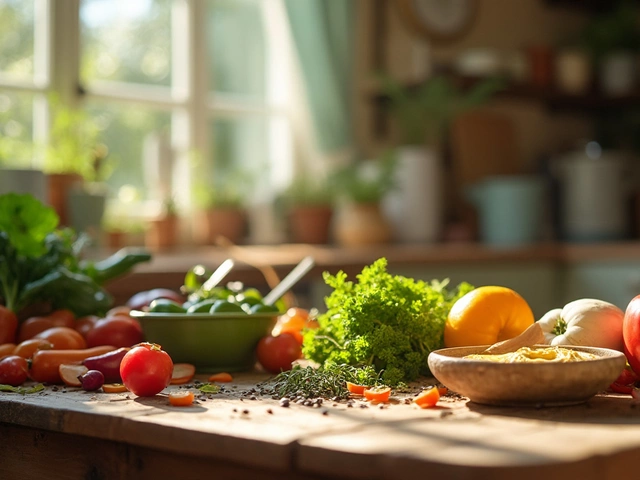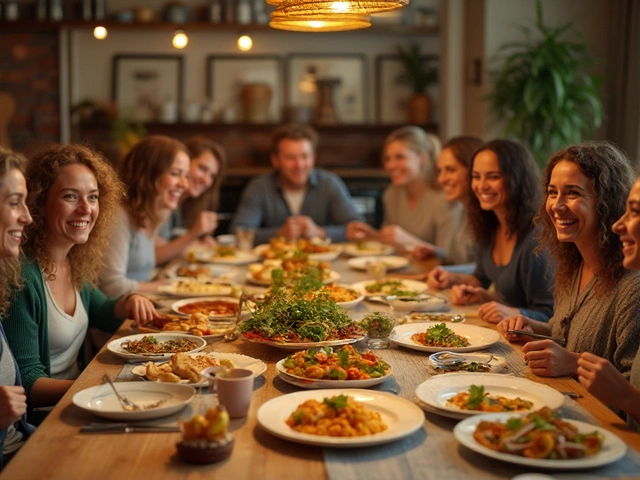
Ever felt that sting of regret after tearing through a box of cookies or inhaling a bag of chips late at night? You're not alone. Food is tied to comfort, joy, and sometimes, a little guilt trip that makes your stomach twist more than anything you’ve eaten. But what if you could eat your favorite junk food and skip the shame? Science says you can. Here’s how.
Why We Feel Guilty About Junk Food
Food guilt isn’t just something you invent in your own mind; it’s baked right into modern culture, especially in the age of social media. Every scroll is loaded with fitness influencers flexing abs and avocado toast, while ads for fast food deals are only a swipe away. The result? No matter what you choose to eat, someone’s always making you feel like it’s the wrong pick. The truth is, feeling guilty about eating junk isn’t just mentally annoying—it can actually mess with your body, too.
Researchers at Maastricht University in the Netherlands found that people who feel guilt after eating unhealthy food are more likely to gain weight in the long run. This isn’t just because they eat more junk, but because guilt often leads to secret, mindless eating. You sneak snacks, eat fast instead of enjoying, and don’t even taste what you’re craving. Ever hidden a chocolate wrapper so nobody knows you ate it? That’s guilt in action.
This cycle often leads to the forbidden-fruit effect, where what’s "off-limits" just becomes more tempting. It also makes you overeat as a rebel move against the imaginary "food police". One study from Cornell University said that calling foods 'bad' makes them more appealing—and increases the portion sizes people serve themselves when they finally do eat them.
But here’s the big twist: no single food can make or break your health. Your body isn’t keeping a scorecard and handing you red marks for having pizza on a Friday. It’s the consistent habits over weeks and months that shape health, rather than any one meal or even an especially wild weekend.
Beth Rosen, Registered Dietitian, puts it simply:
"Guilt has no place at the table. Enjoying food, and making space for treats, is actually part of a balanced diet."
Fact is, you absolutely can eat the foods you love, but it takes some tweaks in the way you think—not just what’s on your plate.
Strategies to Eat Junk Food Without Feeling Guilty
Stepping off the guilt-train starts by ditching the "all or nothing" trap. Eating a burger doesn’t flip some invisible switch that erases all your healthy choices. Let’s talk real tactics you can use—in a way that feels doable, not like some rigid nutrition plan you ditch after a week.
- Room for pleasure: If you love fries, make space for them on purpose, not as an accident. When you allow yourself to enjoy them, you actually tend to eat less over time, since you’re not rebelling or chasing forbidden fruit.
- Slow down and savor: Ever noticed how quickly we gobble up junk food? Next time you have a slice of cake, hit pause. Look at it, smell it, notice the texture. Slowing down helps your brain register the flavor, making you feel satisfied with less.
- Unhook emotions from eating: Reaching for chips because you’re bored or sad is a universal move. But start asking yourself: "Am I actually hungry?" Sometimes you’ll realize you just want a distraction, not food.
- Keep it specific: Don’t eat junk just because it’s there. Craving chocolate? Go for what you love, not just any candy on the coffee table. When you focus on what you really want, it's easier to feel satisfied.
- Use the 80/20 rule: Leave 20% of your food choices for the fun stuff (yep, even the greasy, salty kind). 80% can be your usual nutritious meals. This balance works way better long term than strict dieting.
- No "food shaming": That’s both for yourself and for others. Making judgmental comments never helps. Be kind about your own choices, even if it’s an extra slice of pizza.
Also, give yourself a reality check when you slip into negative thoughts. A bag of chips won’t undo your life’s hard work on health or fitness. Habit is what matters, not single moments.
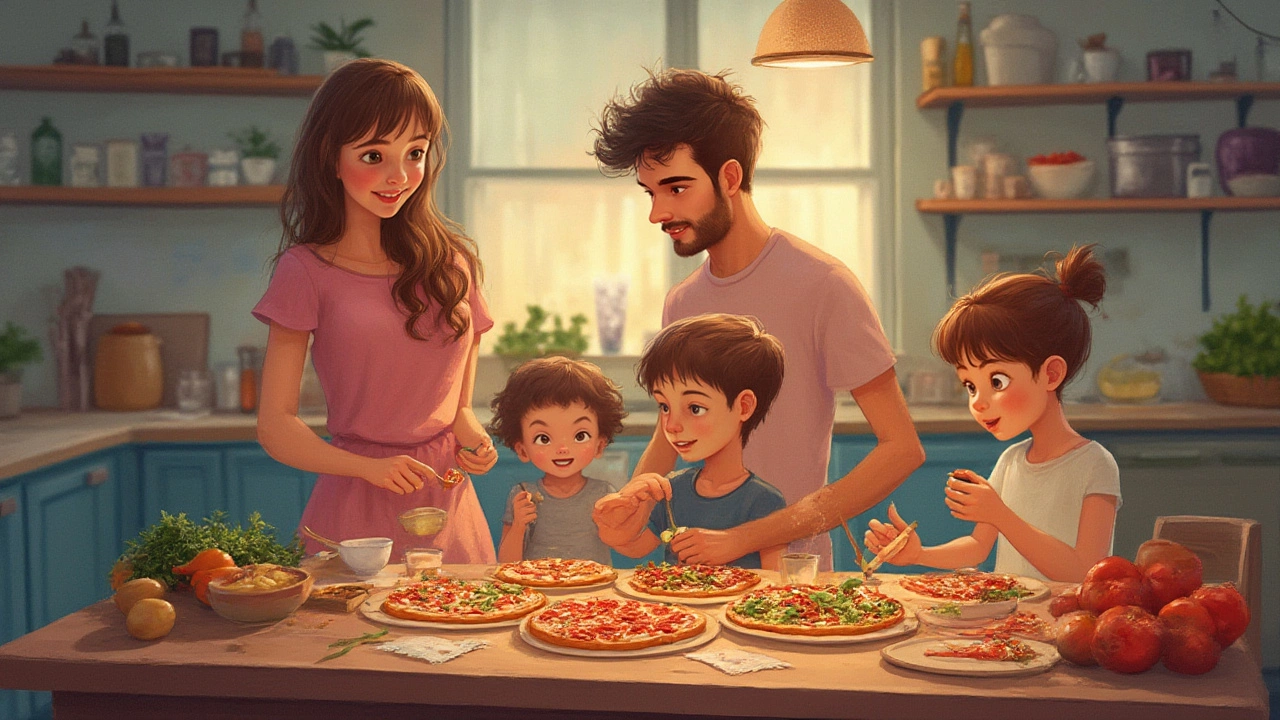
How to Build a Healthy Relationship with Junk Food
The real trick isn’t learning new recipes or counting calories—it’s rebuilding trust with your body and food. That snooty voice in your head that calls fries "bad" or waffles a "sin"? Time to turn down the volume.
One research study from Yale shows that people who take a flexible approach to eating—enjoying treats in balance—have lower BMIs and less chance of binge eating compared to hardcore dieters. When you trust yourself, you can have a single donut at the office and move on with your day rather than spiraling into guilt or a weeklong donut-palooza.
There are some practical steps that’ll help rewire your thinking:
- Practice food neutrality—stop attaching moral labels like "good" or "bad" to pizza, burgers, or chips.
- Eat mindfully—put your phone down, sit with your food, and notice what you’re eating.
- Don’t skip meals—hungry people lose their willpower fast, and that sets you up for big binges when junk food is around.
- Handle social pressure—friends might push you to eat or avoid certain foods. Do what feels right for your body, not theirs.
- Listen to hunger and fullness, not the clock or calories. Your body knows when it’s had enough—trust it.
- Forgive yourself for slip-ups. Nobody’s perfect, and tomorrow is a new meal.
If you want a bit of science to back this up, here’s something cool: eating the foods you crave in small, mindful amounts can actually reduce cravings over time. A study in the journal Appetite found that those who allowed themselves moderate treats reported fewer food obsessions than those who tried to abstain entirely.
The most important thing? Food is supposed to be enjoyable. Enjoying the occasional burger or sundae should be part of your happiness, not something you pay for with guilt or shame.
Balancing Cravings with Nutrition
So, how do you make sure that a few slices of pizza or a milkshake doesn’t turn into a free-for-all? It’s all about being intentional. Setting up your week with a mix of nutritious meals and the things you crave keeps you from burning out.
Check out how you can build in the junk without losing the healthy balance:
- Pair up: Got chips? Add some guac or salsa for fiber and vitamins. Love pizza? Toss a salad on the side for crunch and balance. Adding something healthy to the plate makes you feel fuller and keeps blood sugar steadier.
- Watch the portions: Restaurants love to go big on servings, but you can split fries with a friend or package half your burger for later. Turns out, most of us eat what’s in front of us—so if you downsize, you’ll still be satisfied but less stuffed.
- Don’t skimp on protein and fiber: Starting your meal with a boiled egg, Greek yogurt, or nuts means you’re less likely to wolf down snacks out of hunger.
- Make junk food "special": Reserve it for parties, outings, or movie nights—not your boredom snack when you’re on autopilot. You’ll appreciate it more.
- Drink water—not just soda: A glass of water before or during your meal helps fill you up and keeps cravings in check.
Yep, it also helps to know the real numbers. Here’s a quick look at the calorie counts for some favorite "junk" foods versus some healthier daily options (all values average for a standard serving):
| Food | Calories | Sugar (g) | Protein (g) |
|---|---|---|---|
| Regular Cheeseburger | 300 | 7 | 15 |
| Medium Fries | 350 | 0 | 4 |
| Soft Drink (can) | 150 | 40 | 0 |
| Greek Yogurt | 120 | 5 | 15 |
| Apple | 80 | 17 | 0 |
This isn’t about calories counting every crumb. It’s just about being aware. If you’re into pizza, maybe skip the soda or double up on veggies that day. It all adds up—over weeks, not hours.
One little fact: According to a 2023 Stanford study, people who let themselves have a treat once or twice a week stayed on track with their health goals far better than those who quit junk cold turkey. Your body and mind do best when you make room for junk food in a smart, laid-back way.
So next time you reach for chips or a donut, ditch the guilt. Enjoy it fully, trust your habits, and get on with your day. Food should be joy, not punishment.

